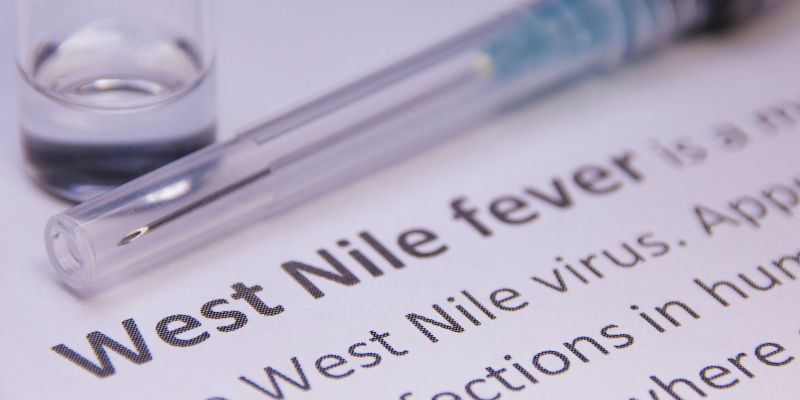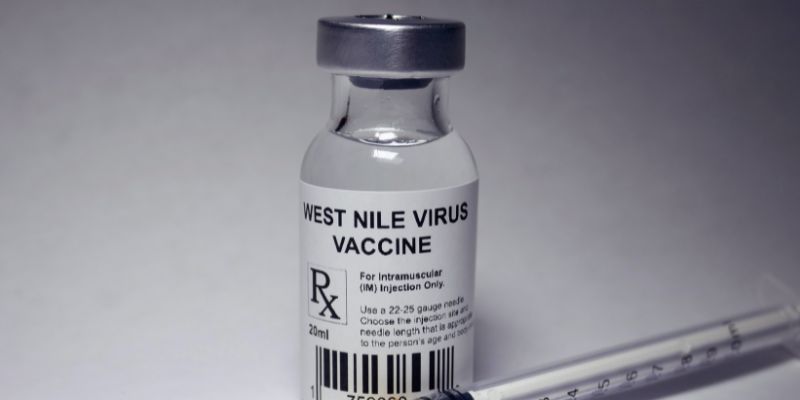A Comprehensive Guide To West Nile Virus Symptoms: What You Need to Know
Mosquish-borne West Nile virus (WNV) can cause mild to severe disease. Although many virus carriers go without symptoms, some can have major medical and neurological problems. Especially in mosquito season, knowing the WNV symptoms is vital. Early recognition of these symptoms will enable you to get treatment and lower your long-term risk.
Whether your headache is mild or severe and you experience confusion and muscular weakness, your health depends on knowing what to check for. This article will guide you through the most often occurring and severe West Nile virus symptoms, clarify who is more at risk, and provide preventive advice. Keeping educated will help you take the required action to guard your loved ones and yourself against this potentially fatal illness.
What is West Nile Virus?
An infected mosquito's bite mostly spreads the West Nile virus (WNV). These mosquitoes bite WNV-infected birds, therefore becoming carriers of the virus. Once infected, a mosquito can pass the virus on to people, animals, and other birds. The virus is most active in summer and early fall when mosquito activity is highest. Although most virus sufferers have minor or no symptoms, some may have more severe medical issues.
Common minor symptoms that could be confused for other viral illnesses include fever, headaches, and body aches. Rarely, though, the virus can cause extreme sickness, including meningitis, encephalitis (brain inflammation), or paralysis. In certain situations, these major illnesses can be fatal; they can also have long-term consequences for health. Older persons and those with impaired immune systems are more prone to severe disease.

Common Symptoms of West Nile Virus
West Nile virus (WNV) can cause moderate to more obvious symptoms; others show none. Usually, three to fourteen days after a mosquito bites someone, the virus shows up. Most often occurring mild symptoms include fever, headache, body aches, tiredness, and skin rashes. A few people could also have swollen lymph nodes. These symptoms often resemble other viral infections—including the flu—which can complicate diagnosis.
These moderate symptoms often go away on their own without any medical intervention. However, in certain circumstances, symptoms could last longer or even worse. Although most people heal without major issues, monitoring symptoms and visiting a doctor if they get severe is crucial if symptoms, including high temperature, severe headache, confusion, or muscular weakness, arise.
How West Nile Virus is Diagnosed?
Examining the patient's symptoms, recent travel history, and possible mosquito exposure—particularly in places where the virus is common—helps one diagnose West Nile virus (WNV). Doctors will probe about outside exposure during peak mosquito seasons, which can assist in ascertaining the probability of illness. Healthcare professionals sometimes order blood tests, among other laboratory procedures, to validate the diagnosis. These tests can find the virus or antibodies the body generates in reaction to an infection.
If the patient exhibits indications of serious symptoms, such as neurological problems, a lumbar puncture—a spinal tap—may be performed. This surgery entails gathering cerebrospinal fluid from the spinal canal to look for brain and spinal cord inflammation or infection. Although blood tests confirm WNV presence, lumbar puncture may be required to ascertain whether the virus has compromised the neurological system, particularly in more severe forms of the disease.
Long-Term Effects of West Nile Virus
While most West Nile virus (WNV) sufferers recover completely, some may have long-term consequences that affect their everyday lives. These long-term consequences can include constant tiredness, muscle weakness, and trouble focusing, which can impair daily task performance. Some people experience these symptoms weeks or months after the first infection clears.
Long-standing problems can follow, including memory loss, trouble walking, and limb weakening. Older people with compromised immune systems run more danger of long-term problems. Although most people recover without any long-lasting repercussions, those who have severe symptoms should have appropriate treatment and rehabilitation to help control any continuous problems connected to the infection.
Treatment for West Nile Virus
West Nile virus (WNV) does not have a specific antiviral treatment. Hence, management mostly concentrates on symptom relief and supporting care. Most persons with moderate symptoms—such as fever and body aches— recover independently with rest, fluids, and over-the-counter painkillers such as acetaminophen or ibuprofen. In more serious cases, such as those involving neurological symptoms like meningitis or encephalitis, hospitalization can be necessary.
In these situations, treatment usually consists of intravenous fluids, painkillers, and medications to regulate symptoms. If muscle weakness or paralysis develops, patients occasionally may require physical therapy or breathing support. Recovering from severe WNV can take weeks or even months; some people may have long-term symptoms, including neurological issues or tiredness.

Prevention of West Nile Virus
Avoiding mosquito bites will help prevent West Nile virus (WNV). These are some practical advice to help you lower your infection risk:
- Apply insect repellent, picaridin, DEET, or lemon eucalyptus oil to exposed skin.
- Wear Protective Clothing: Choose long-sleeved shirts, long pants, socks, and shoes—especially in the evening and early morning when mosquitoes are most active—as protective gear.
- Install Screens: Install screens from windows and doors to keep mosquitoes out of your house. Fix any gaps or holes to keep them out.
- Eliminate Standing Water: Mosquitoes breed in stationary water. Hence, routinely empty containers, including gutters, birdbaths, and flower pots, to stop mosquitoes from laying eggs.
- Limit Outdoor Activities: Avoid morning and evening when mosquitoes are most likely to strike. If you must leave the house, be especially careful by dressing in protective gear and using repellent.
Conclusion:
The West Nile virus can cause everything from moderate symptoms to severe neurological problems. Reducing the risk of infection depends mostly on early identification and preventative actions, including avoiding peak mosquito activity hours and applying insect repellent. Although most people recover without problems, those with severe symptoms could have long-term health consequences, especially if the infection damages the neurological system. Managing the virus and guaranteeing better results for those impacted depends on preemptive measures to reduce mosquito bites and quick medical attention for developing symptoms.












